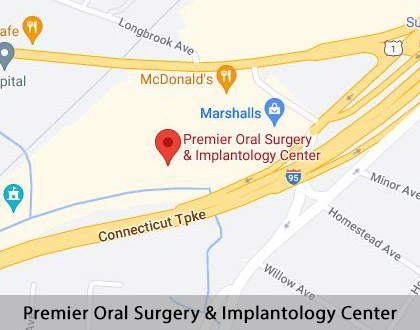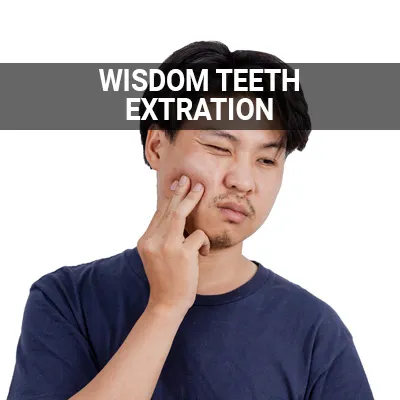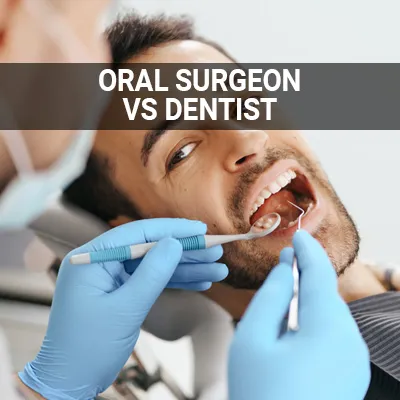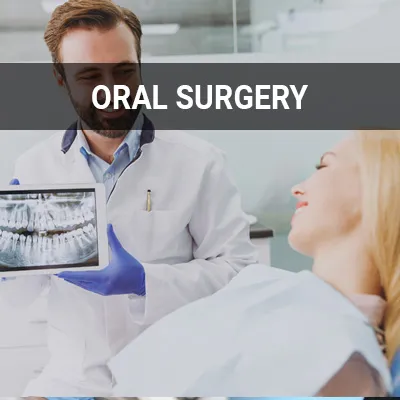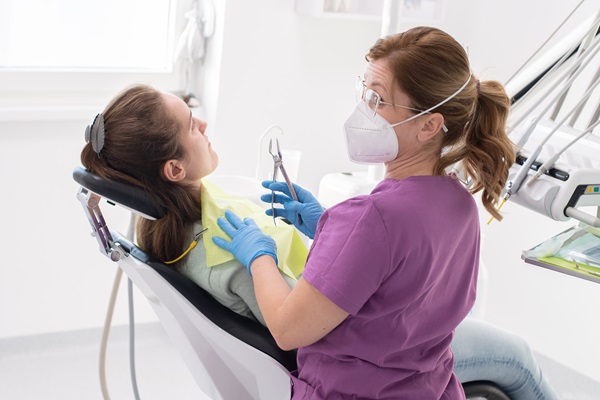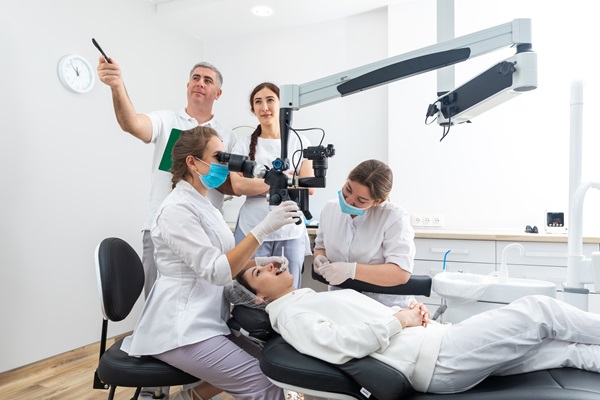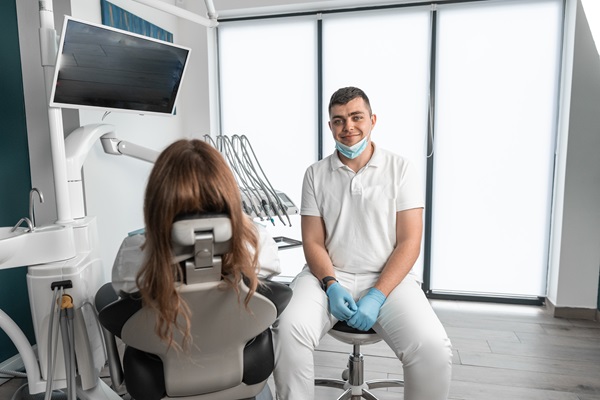Tooth Extractions Stratford, CT
A tooth extraction involves completely removing one or more teeth from the socket in the alveolar bone. When it is impossible to save a damaged tooth, an oral surgeon will perform a tooth extraction to preserve as many other natural teeth as possible. While this can sound drastic, tooth extractions are more common than most people think.
Premier Oral Surgery & Implantology Center offers tooth extractions in Stratford and the surrounding area. Our team is available to answer your questions and guide you through the tooth extraction process. Call us at (203) 760-0190 to learn more about this service.
Reasons for Tooth Extraction
There are various situations where it makes sense to have an oral surgeon extract a tooth to improve one’s oral health. The American Dental Association (ADA) explains that tooth extractions address disease, trauma, or crowding. Sometimes tooth decay causes infection so severe that an extraction is the only option to stop it from spreading throughout the mouth. In other cases, severely cracked and broken teeth are unsalvageable, and it may be more beneficial to extract them.
Overcrowded teeth can also necessitate tooth extraction. Removing these teeth allows the surrounding teeth to move into the proper place. Some typical signs that point toward the need for tooth extraction can include:
- Jaw pain or stiffness
- Pain while biting or chewing
- Presence or history of gum disease
- Severe tooth pain
- Swollen gums around one or two teeth
- Signs of a tooth infection
During a consultation, our team will take the time to review the patient’s needs and determine if a tooth extraction is the most effective option.
“In other cases, severely cracked and broken teeth are unsalvageable, and it may be more beneficial to extract them.”
Preparing for Tooth Extraction
Before the procedure, the patient will attend a consultation to go over the procedure and take X-rays. We will review a patient’s comprehensive health history as some conditions can make a patient more susceptible to infection. People with a specific medical condition, infection, weakened immune system, or a long procedure may receive antibiotics. This will help us ensure we accommodate all the patient’s needs during the extraction.
Patients should also notify us about any medications and supplements they are taking to avoid any possible drug interactions. Patients should stop taking blood thinners before the procedure to lower the risk of bleeding during the extraction and help speed up the healing process. We also generally recommend no eating or smoking 12 hours before the procedure and no smoking 24 hours after.
In some cases, the patient will also want to ensure they have someone to drive them home following treatment. This way, they can ensure safe transportation without issue.
“Patients should also notify us about any medications and supplements they are taking to avoid any possible drug interactions.”
The Tooth Extraction Process
Before starting the tooth extraction, the oral surgeon will numb the area of the mouth to ensure that the procedure is as comfortable and painless as possible. There are two types of extraction procedures, simple and surgical extractions. Simple extractions are performed mostly on fully visible and unbroken teeth. Our surgeon loosens the tooth with a tool called an elevator before using forceps to remove it during this procedure.
A surgical extraction is necessary when a damaged tooth is not easily accessible. This can occur when a tooth is broken under the gum line or has not fully erupted through the gum line. Our surgeon makes an incision in the gum to separate the tissue from the tooth before removing it. Some cases may require the tooth to be split into multiple pieces to allow for easier extraction.
Along with that, some surgical extractions may require more extensive sedation, which means the patient may be asleep during the surgery. In these cases, the patient will need to have someone drive them home following the surgery.
“A surgical extraction is necessary when a damaged tooth is not easily accessible.”
Check out what others are saying about our dental services on Yelp: Tooth Extractions in Stratford, CT
After Tooth Extraction
A crucial part of aftercare is maintaining the blood clot that forms in the socket where the extracted tooth used to be. Patients should expect to rest for at least the next 24 hours after the procedure. Avoid rinsing, smoking, sneezing, spitting, and using straws for the first few days while the clot is forming. These actions can dislodge the clot and prolong the recovery process.
Patients can use over-the-counter pain medications to manage pain and reduce inflammation. Our oral surgeon will review the patient’s medical condition to ensure they can take pain relievers or other medication without issues. Ice packs can also minimize discomfort when applied to the affected area for 10 to 20 minutes at a time.
Once the clot is secure, patients can rinse with salt water and brush and floss while avoiding the extraction site. We recommend eating soft foods throughout the entire healing process.
“Avoid rinsing, smoking, sneezing, spitting, and using straws for the first few days while the clot is forming.”
Questions Answered on This Page
Q. Why would I need a tooth extraction?
Q. How do I prepare for a tooth extraction?
Q. What happens during the tooth extraction?
Q. What should I expect after the tooth extraction?
Q. Are there any possible complications with a tooth extraction?
People Also Ask
Q. What happens during a wisdom tooth extraction?
Q. How is an oral surgeon different from a general dentist?
Q. What are the symptoms of a cracked tooth?
Possible Complications
Tooth extraction is associated with some risks and complications, as with any surgery. The risks are not usually serious, but knowing about them can help with prevention or treatment. However, our team will take the necessary precautions to ensure the patient’s safety. The most common complication is an infection since the mouths are full of bacteria. Some signs of infection include:
- Bad taste in the mouth
- Bleeding for more than 24 hours
- Fever
- Prolonged swelling after the first three days
- White or yellow pus
- Worsening pain
Another possible complication is dry socket. This occurs when a prematurely dislodged clot exposes the jawbone and nerves to air and food. Nerve injury is an extremely rare complication that can result in numbness around the gums, tongue, lower lip, and chin. Patients experiencing such symptoms should notify us immediately so we can help. Our oral surgeon will take the time to evaluate a patient’s health and customize the treatment plan to meet their needs.
“Our oral surgeon will take the time to evaluate a patient’s health and customize the treatment plan to meet their needs.”
Frequently Asked Questions
Q. How is dry socket treated?
A. Dry socket can occur without proper aftercare and maintenance. The patient will have to return to our office to receive care if the blood clot dislodges prematurely. We will clean the socket and place the medicine inside to help it heal.
Q. How can I control the bleeding after my tooth extraction?
A. We will give patients extra gauze to use at home. Patients should not remove the gauze unless it has bled through completely. Swapping out gauze too often can disturb the mouth and cause bleeding to last longer.
Q. How long will it take for my gums to return to normal?
A. The tissue will begin to close and heal over the extraction site in one to two weeks. Overall, it should take approximately four months for the socket to reach full bone restoration.
Q. When can I resume my normal activities?
A. Teeth extraction can be a simple extraction or a surgical one. Patients should take the rest of the surgery day off to recover and limit any vigorous activity for the next three to five days. Most patients can return to work and everyday activities a couple of days after the procedure.
Q. What are the benefits of tooth extraction?
A. Extraction can protect surrounding teeth from an infected tooth. Another benefit is relief from discomfort caused by an infected or severely damaged tooth. Patients can also gain a more beautiful smile as extra space can allow other teeth to move into alignment.
Start Feeling Better – Visit Us Today
By visiting us as soon as possible, our team can help get you the professional treatment you need. Instead of waiting around and allowing the symptoms to get worse, we can provide you with treatment options.
Contact Us Today
Sometimes tooth extraction is the best way to solve a dental problem. Our team at Premier Oral Surgery & Implantology Center can help. Call us (203) 760-0190 to learn more about this procedure.
Helpful Related Links
- American Dental Association (ADA). Glossary of Dental Clinical Terms. 2023
- American Academy of Cosmetic Dentistry® (AACD). Home Page. 2023
- American Academy of Maxillofacial Prosthetics. American Academy of Maxillofacial Prosthetics. 2023
- American Association of Oral and Maxillofacial Surgeons. American Association of Oral and Maxillofacial Surgeons. 2023
- American College of Oral and Maxillofacial Surgery. American College of Oral and Maxillofacial Surgery. 2023
- National Cancer Institute (NCI). National Cancer Institute (NCI). 2023
- WebMD. WebMD’s Oral Care Guide. 2023
About our business and website security
- Premier Oral Surgery & Implantology Center was established in 2018.
- We accept the following payment methods: American Express, Cash, Discover, MasterCard, and Visa
- We serve patients from the following counties: Fairfield County
- We serve patients from the following cities: Stratford, Bridgeport, Milford, Trumbull, Orange, Fairfield, Easton, and Shelton
- Norton Safe Web. View Details
- Trend Micro Site Safety Center. View Details
Back to top of Tooth Extractions

